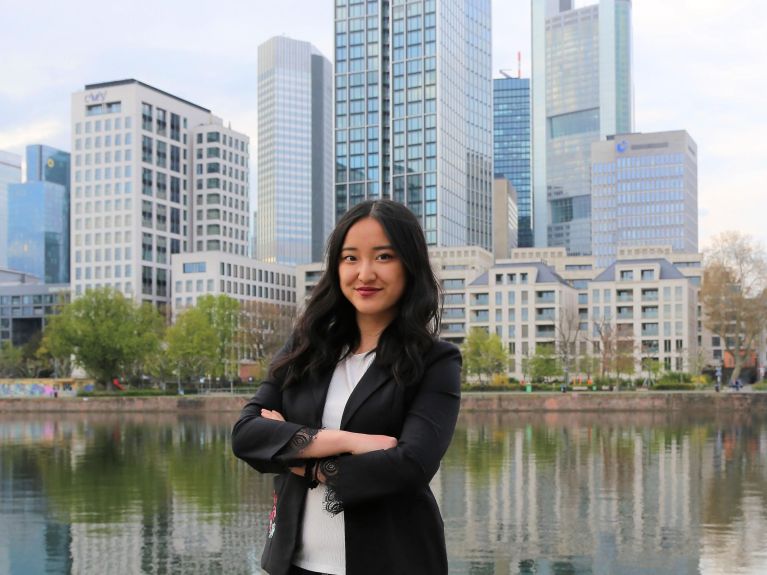“A climate-positive circular economy”
Nadja Yang is a systems engineer who is carrying out research into the urban bioeconomy. We asked her about her visions for the world of the future.

Nadja Yang studied at the Technical University of Munich and is doing a doctorate in systems engineering at Oxford. The daughter of Chinese immigrants grew up near Frankfurt am Main. She was President of the “European Young Engineers”, received the prestigious German Rhodes Scholarship and was selected by Forbes magazine as one of the “Forbes 30 Under 30 Europe & DACH”, as well as being listed among the “Top 50 Women in Engineering”.
Ms Yang, what are you working on right now?
I’m currently working on my doctorate as a systems engineer in Oxford. My specific focus is the concept of the urban bioeconomy, which seeks to help increase efficiency in the flow of biological resources and land use. Rather than simply accumulating waste and creating a nutrient imbalance, towns and cities are to be supported in contributing to the biological resource cycle. The first step was to define the concept, and we’re now quantifying and optimising existing urban systems so as to enhance the management of resources and space.
For example, we’ve established that the recycling rates published by Oxford are not based on the total amount of waste. Even though Oxford is one of the UK’s pioneering cities when it comes to recycling, there’s still a lot to be done. It is estimated that around half of food waste fails to end up in the right bin. And even if the other half does make it into a biogas plant, large-scale by-products such as fermentation residue and CO2 are still not being utilised in many cases. These would be valuable for greenhouses, for example. This kind of symbiosis could be used to create a far-reaching network system.
What are your visions for the world of the future? < 1}
In a utopian world, I like to think we will have achieved a climate-positive and preferably bio-based circular economy.
In the short term, I hope all individuals and institutions will be aware of the problems that are holding us back from a more sustainable future. Once this has happened, it will be crucial to define goals and introduce strategies, and then go on to develop legislation, business models and the like on this basis.
In the medium term, we ought to be able to feel the effects of the changes. Waste separation will no longer be an issue: every municipality should have access to functioning recycling facilities. Technological innovations will be in place such as waste data collection, new recycling processes and more intelligent waste separation systems.
In the long term, I envisage a society that has internalised the goal of a climate-positive, bio-based circular economy. This will finally mark the shift in terms of system and mindset from a linear economy to a circular economy. It would be a world in which all resources are considered to be of value and are traded accordingly.
What is the role of your specialist area in achieving a sound future?
In my field the aim is to optimise systems in such a way that advantages are maximised and disadvantages minimised. So in line with the principle of industrial ecology, we help increase efficiency by tapping into unused or underused resources and land, and by closing local cycles.